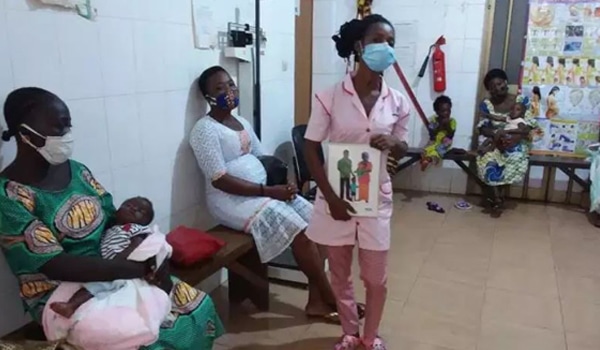
The NGO Equilibres et Populations carried out a survey from April to June 2020 among some 30 organisations in seven West African countries (Benin, Burkina Faso, Côte d’Ivoire, Guinea, Mali, Niger and Senegal). It found that Covid-19 posed a new threat to African women by penalising access to maternity services and contraception. Problems found included the closure of health centres and tensions in supply chains dependent on imports mainly from China and India. For fear of infection, attendance at family planning services showed a significant decline.
In Côte d’Ivoire and Benin, there was disruption in the supply of contraceptive products and reallocation of resources to Covid-19 treatment centres, leading to the closure of maternal health services in Senegal and Niger, as well as suspension of distribution of contraceptives and information campaigns in rural areas due to the ban on gatherings, the shutting of mobile clinics and more.
Brigitte Syan, West Africa advocacy manager at Equilibres et populations said the associations in their network who work for women’s rights and access to family planning report an increase in domestic violence during lockdown, as has been reported from many other countries too. Domestic workers have also been victims of abuse by their employers. The risk of a proliferation of unwanted pregnancies without the possibility of management and support is high.
Marie-Evelyne Petrus Barry, Director of IPPF Africa, supports this observation: “The Covid-19 crisis is occurring in societies marked by great precariousness and it is disrupting already fragile health systems. We are present in 39 countries and everywhere we have been forced to reduce the offer of support and care.”
In São Tomé and Principe, she says, half of the clinic’s team were infected and the clinic had to close. In Sierra Leone, the ban on gatherings brought prevention programmes for young people to a halt. In the refugee camps, which are numerous on the continent, the suspension of all these services has been even more striking.
The West African office of UNFPA has distributed a practical guide based on the lessons learned from the epidemics since 2003, e.g. during the Ebola epidemic in 2013-16 in Guinea, Sierra Leone and Liberia, the closure of maternal health clinics led to a 70% increase in maternal mortality.
It’s been recommended that countries expand the distribution points of contraceptives to outside health centres. Some countries have taken such initiatives: in Kampala, contraceptives can now be ordered via an online shopping site and delivered by the local mototaxi company SafeBoda. Shipping costs are free and the majority of the products offered are subsidised, and the project is funded by Sweden. But this solution for connected city dwellers remains anecdotal on a continent where, even before the pandemic, barely half of modern contraceptive needs were being met.
Above all, travel restrictions, the saturation of health centres or simply the fear of being infected all push women to resort to solutions that they can manage on their own: contraceptive pills, condoms or patches. These methods were abandoned by ministries of health in recent years in favour of long-lasting injections and implants. In Kenya, for example, 45% of women who use modern contraceptive methods use an injectable provided by government services.
However, the methods provided in public clinics are free or heavily subsidised, which is not the case with pills or condoms sold in the private sector. This puts the poorest women at risk of not being able to obtain them. In Burkina Faso, a third of women are in this situation.
The Minister of Health, Claudine Lougué, is not however worried. The country, which recorded the first coronavirus-related death at the end of March, is preparing to reopen its airspace. “We have taken the initiative to secure our supplies with India and China. If any shortages were to occur, it would be in August. But I don’t think that will happen,” she said. Like many countries in the region, Burkina has received financial and technical support from the Global Financing Facility for Every Woman, Every Child. Even so, in the coming year, 81,000 unintended pregnancies could occur in the event of severe disruptions in access to contraception, according to assessments provided by the GFF. On the whole continent, there are hundreds of thousands more.
SOURCE: Le Monde, by Laurence Caramel, 27 July 2020 (en français) + PHOTO from Togo, by Rita Gbodui, UNFPA



